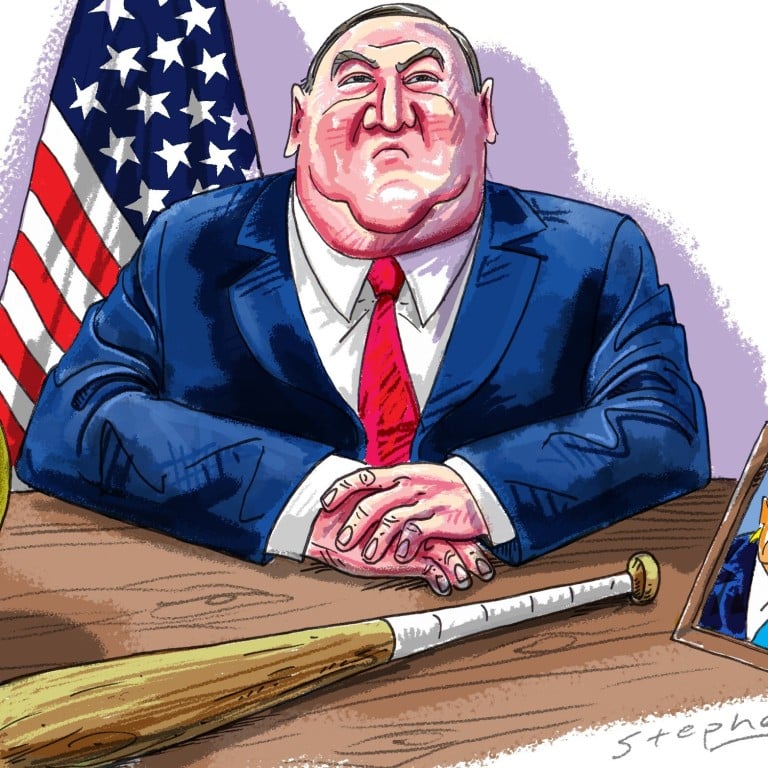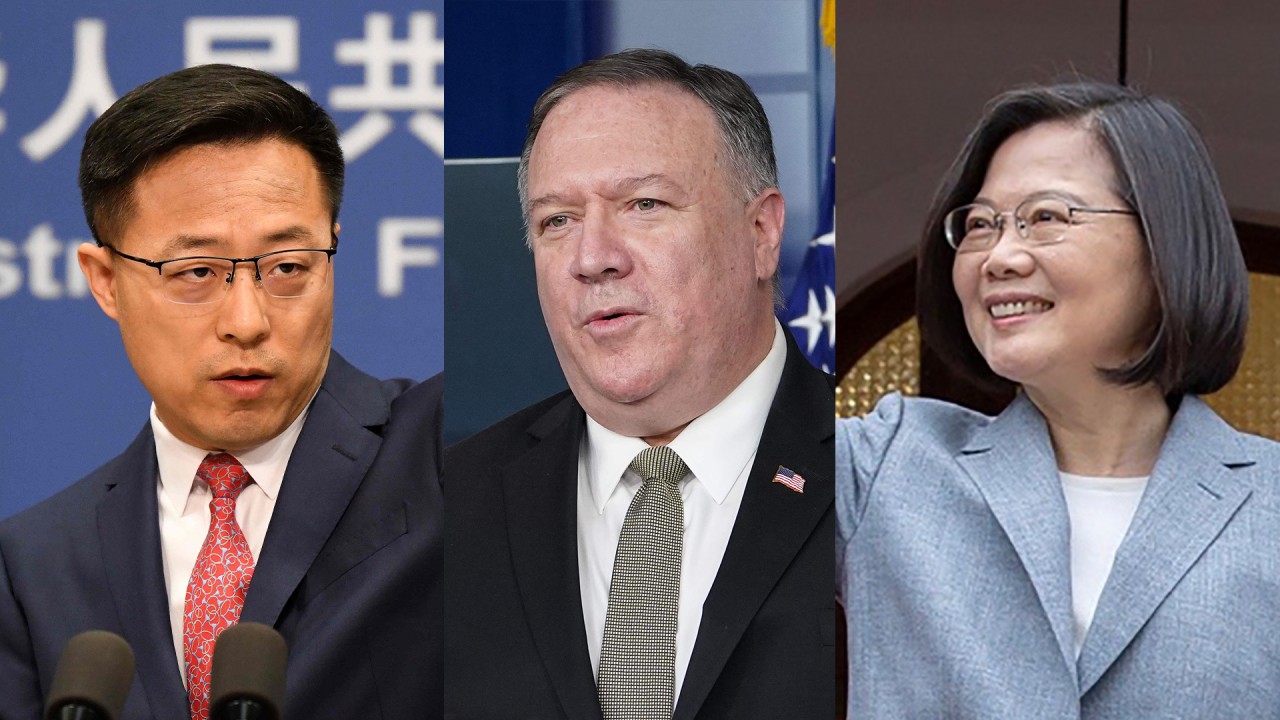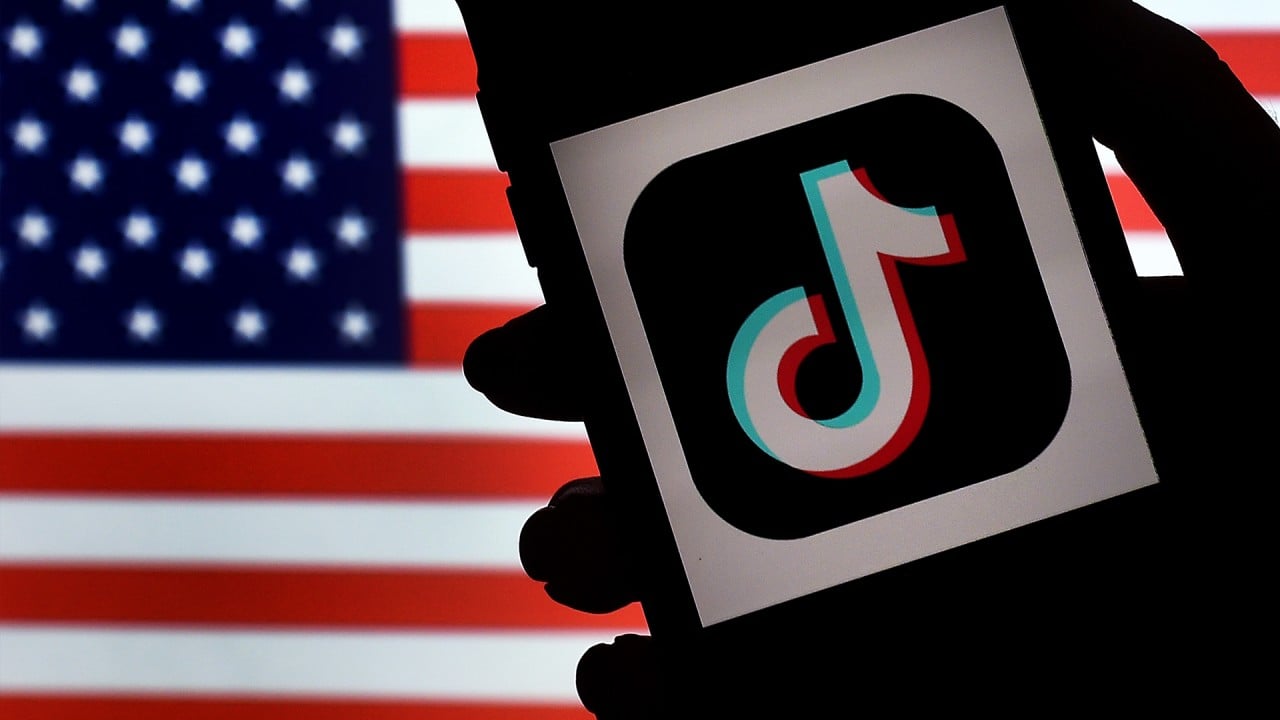
US-China relations: how Mike Pompeo’s brusque diplomacy fails to win friends
- Pompeo’s rhetoric is aimed at American public, promoting Donald Trump’s policies, not building relations with foreign nations or advancing US interests abroad
- In a globalised society, the effects foreign policy decisions have on our security, economy and place in the world cannot be understated
In a recent interview on Fox News Channel’s Life, Liberty & Levin, US Secretary of State Mike Pompeo discussed the Trump administration’s foreign policy actions. For those who don’t closely follow the news or are less versed in foreign policy, much of Pompeo’s rhetoric probably sounded good. For a critical listener, however, it immediately rang false.
While failing to acknowledge these facts, he went on to discuss a foreign policy where “we have to take the facts as they are and not as we wish them to be”. The disconnect was jarring. As the interview continued, Pompeo’s priorities and characteristics as secretary of state became increasingly clear and worrisome.
I spent nearly 50 years working for the US government. I taught future diplomats at the State Department’s Foreign Service Institute and advised ambassadors, members of Congress and White House officials in my role as head of the Chinese and Korean Section at the US Library of Congress.

02:47
China warns US of ‘strong response’ regarding Taiwan, saying island’s independence is 'dead end'
In September alone, Pompeo had interviews with more than a dozen US radio and television hosts, half of them affiliated with Fox. This does not include interviews with other US organisations, speeches, press statements and social media posts.
It may seem trivial, or even beneficial, that he gives so much attention to speaking to the public. That is not the case, however, when these efforts eclipse and even damage international relations and foreign policy agendas.
How Trump and Pompeo misunderstand 50 years of China engagement
His speeches and rhetoric are aimed at propagandising the American public, not building better relations with foreign nations or promoting US interests abroad.
A key example of how Pompeo’s words aimed at his domestic audience have exacerbated international tensions can be seen with China. In many of his remarks on China, Pompeo criticises the past 50 years of US policy.

06:04
US-China relations: Joe Biden would approach China with more ‘regularity and normality’
If the goal is to democratise China, though, does the current strategy fare any better? Recent polls show there is growing distrust by Americans towards China, which is in line with Pompeo’s rhetoric. In China, however, public sentiment is turning against the United States.
He said “securing our freedoms from the Chinese Communist Party is the mission of our time” and “we can’t treat this incarnation of China as a normal country, just like any other”.
With eye on China, US opens arms to Indonesian defence minister Prabowo
Pompeo attacked the legitimacy of the Communist Party and positioned the US as a stalwart against it. While that message might play well at home, it only serves to increase US-China tensions and make any form of diplomacy more difficult.
By attacking China as a whole, rather than focusing on specific issues, Pompeo has only served to bolster the nationalist, anti-US voices in the party and silence the more moderate ones.

03:07
Stop offering ‘untrusted’ Chinese apps like TikTok and WeChat, Washington urges US tech companies
There is now a feedback loop of negative rhetoric, protectionism and antagonism between the US and China. With leaders in both countries concerned about domestic nationalism and maintaining power, is there any room left for cooperation and compromise?
Other analysts have also found fault with Pompeo’s record. New York Times columnist Thomas Friedman called Pompeo “the worst secretary of state in American history, without a single diplomatic achievement”.
Pompeo shortens Asia trip after Trump falls ill with Covid-19
A Washington Post piece questioned Pompeo’s ethics, found fault with his failure to fill dozens of State Department positions, highlighted a historic low in department morale and concluded that the US has only become more isolated under his tenure.
However, the president, the secretary of state and other officials he chooses are almost solely responsible for US foreign policy. In a globalised society, the effects foreign policy decisions have on our security, economy and place in the world cannot be understated.
Chi Wang, a former head of the Chinese section of the US Library of Congress, is president of the US-China Policy Foundation

